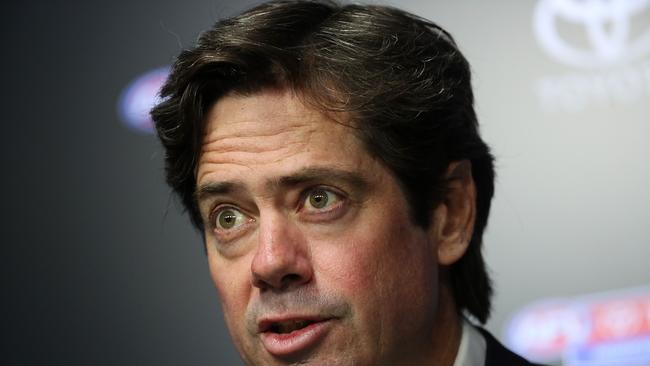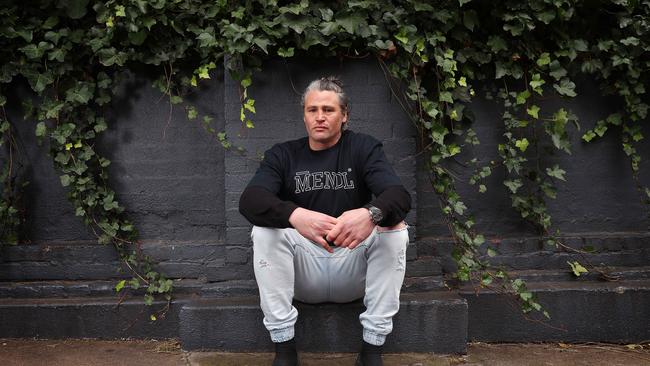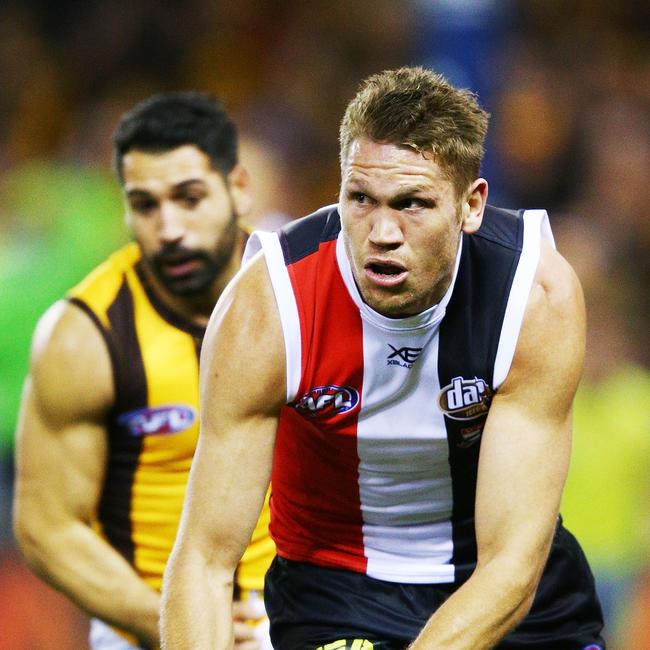AFL and player union to review drug policy amid accusations of drug “free-for-all”
Players have been accused of flouting the AFL’s much-maligned illicit drug code, and the AFL are set to respond. It comes after harrowing revelations from former footballer Jon Hay.

AFL News
Don't miss out on the headlines from AFL News. Followed categories will be added to My News.
Footy’s illicit drugs policy will undergo a comprehensive review this year as the league seeks to crack down on players openly flouting its two-strikes policy.
It comes as Hawthorn said on Monday it had overhauled its practices since Jon Hay was able to access valium and sleeping pills from an open medical cabinet, leading to a 20-year addiction to pain-killers.
The Herald Sun revealed that All Australian Hay had spent 2005 regularly using ice and then been traded to the Roos, who had no idea he had two drug strikes.
The AFL and player union on Monday nigt confirmed to the Herald Sun the review of the much-maligned policy this year.
Key elements of the illicit drugs policy will remain, which now sees players suspended after two strikes but no public release of the number of players who test positive each year.
But while at least one club official is now alerted when a player tests positive - and is offered education and counselling - coaches and support staff remain in the dark.
They want more clarity about the drug issues of players so they can help them, with clubs keen to know if they are trading in a player with multiple drug strikes.
Get your footy fix on KAYO ahead of live matches returning soon. Watch classic battles from the 60s to today, docos, news and more. New to Kayo? Get your 14-day free trial & start streaming instantly >

Hawthorn told the Herald Sun last night it was aware of shortcomings in 2005 but had measures in place to ensure strict guidelines around the issuing of medicine.
“Hawthorn wants its players to leave the club not only better footballers, but better people too,” a Hawthorn spokesperson said.
“Our industry has made significant progress with regards to its integrity procedures and its investment in the welfare of players, and we are far better equipped to help players succeed both on and off the field. Jonathan and his family will always be welcome at our football club.”
The illicit drugs review will take place with the league having hired Dr Kate Hall as its head of mental health and chief psychiatrist Dr Ranjit Menon, who will both help guide the review.
But while the mental health of players will be at the forefront of the illicit drugs policy, it must also cater for players willing to take the system on.
For all the target-testing and increased testing technology there is an admission some AFL players are too aware of the loopholes in the system.
In 2013 there were 20 players who dodged a positive strike using a self-reporting loophole, while players can cite mental health issues to escape testing.
In recent years players including Sam Murray, Brayden Crossley and ex-AFL player Sam Gilbert have served separate ASADA suspensions after cocaine metabolite was found in their system on game day.

A first strike sees players hit with a suspended $5000 fine, counselling and target-testing and a second strike sees their name made public along with a four-match suspension.
A third strike sees the player handed a 12-match suspension.
St Kilda legend Nick Riewoldt said last year there was a drug “free-for-all” in the off-season with “no recriminations” given the system was set up to support drug-taking players instead of penalising them.
"The vast majority of players don't have abuse issues, they're just taking the piss out of the system,” he said.
MORE AFL NEWS:
AFL drugs policy is letting down players and clubs, writes Jon Ralph
AFL injuries 2020: Your club’s injury concerns for every round of the season
